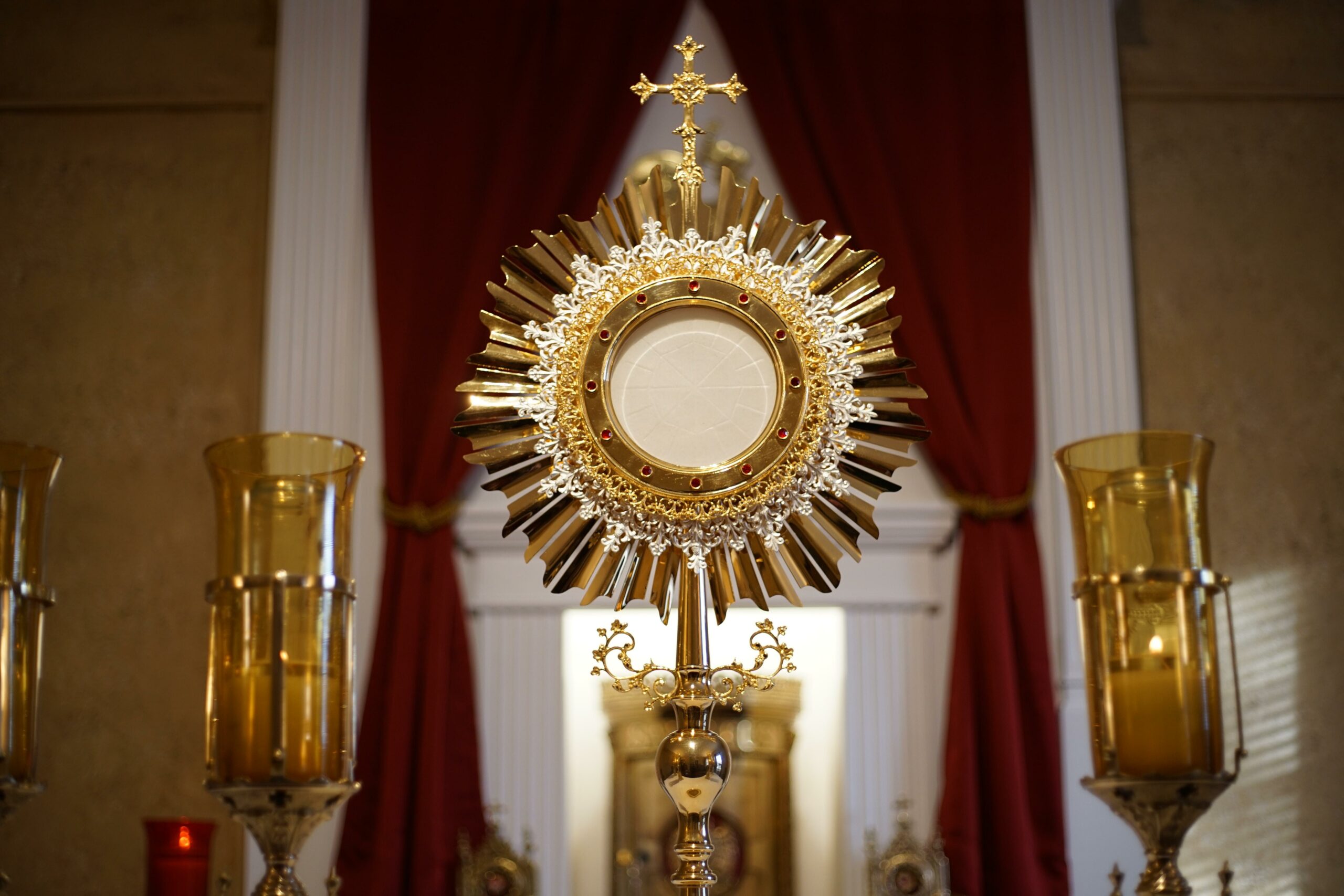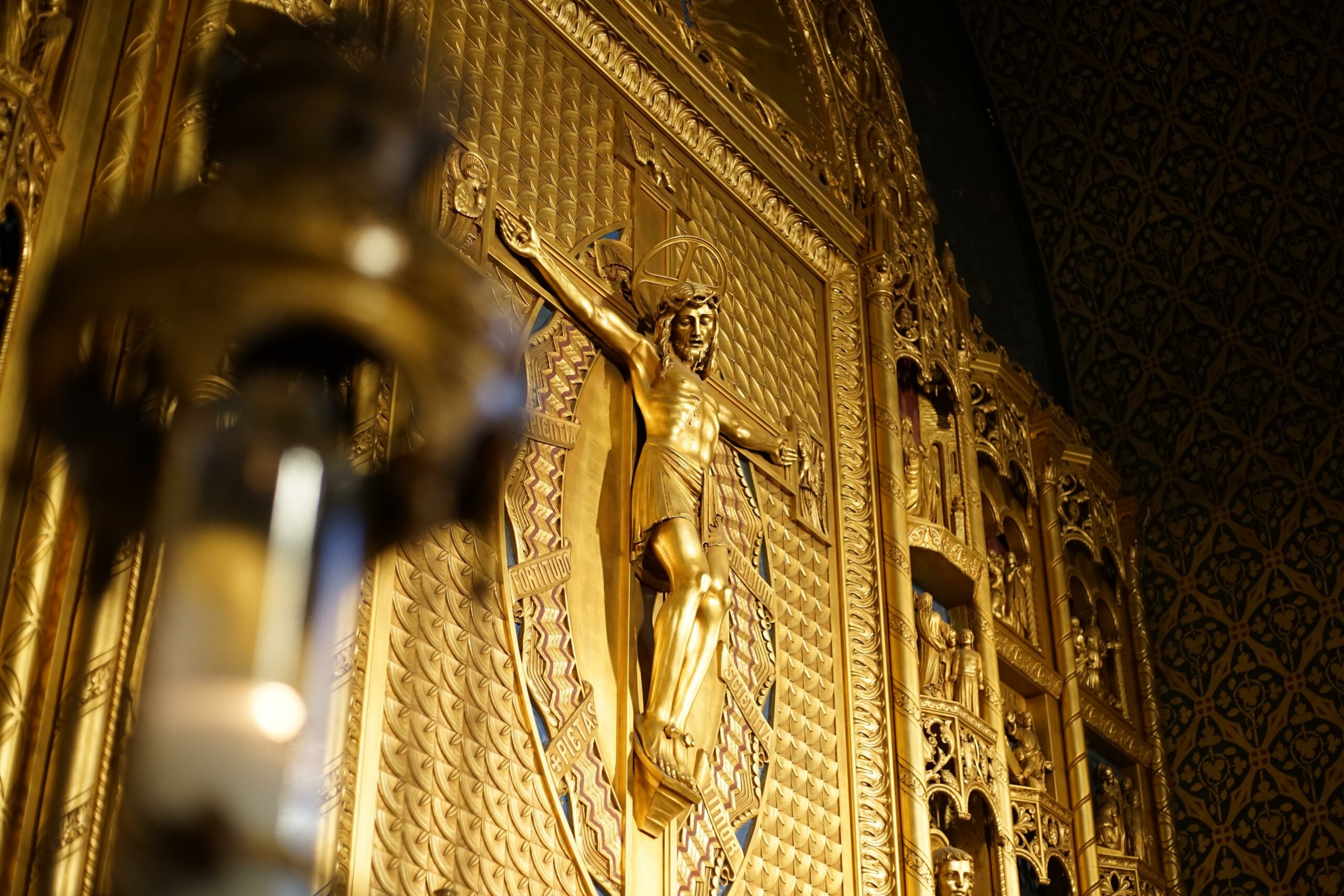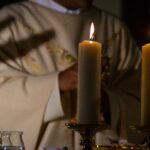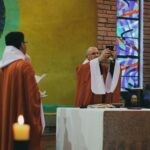Delving into the rich tapestry of Catholic theology, this article unveils the sacred significance of the Eucharist within the Catholic Church. As we embark on this spiritual journey, we will unravel the profound religious meaning behind this sacrament, exploring its historical context and theological nuances. With a seasoned writer’s deep-rooted understanding and a knack for analyzing the intricate facets of spirituality, prepare to be captivated by the captivating exploration of the Eucharist’s religious significance in Catholicism.
Religious Significance of the Eucharist in the Catholic Church
The Eucharist holds immense religious significance in the Catholic Church, serving as the centerpiece of worship and a means of connecting with Jesus Christ. This sacrament, considered the source and summit of the Christian life, symbolizes the profound sacrifice of Jesus on the cross and his presence among believers.

The Transformative Power of the Eucharist
In the Catholic faith, it is believed that during the celebration of the Eucharist, the bread and wine offered by the priest undergo a transformation. They become the body, blood, soul, and divinity of Jesus Christ, while retaining the appearance of bread and wine. This transubstantiation is a testament to the profound spiritual dimension of the Eucharist.
To receive the Eucharist in communion is to encounter the real presence of Christ Himself, becoming nourished by His love and grace. As Catholics partake in this sacrament, they strengthen their relationship with God and draw closer to Jesus.
The Heart of the Church
The Eucharist is often described as the “heart of the Church.” It is central to the lives of Catholics, permeating their spiritual journeys and fostering a sense of unity and belonging. Just as the physical heart is vital for sustaining life, the Eucharist sustains the spiritual life of the Church.
Through the Eucharist, Catholics engage in a profound act of communal worship, as they share in the same body and blood of Christ. This shared experience binds believers together, forming a spiritual bond that extends beyond the confines of time and space.
Personal Encounter with Jesus
One of the most powerful aspects of the Eucharist is the belief that Jesus Himself draws near to each individual personally through this sacrament. Just as Jesus walked among His disciples during His earthly ministry, Catholics believe that He is present in the Eucharist, inviting them to encounter Him in a deeply personal way.
This encounter with Jesus during the Eucharist brings solace, guidance, and healing to those who seek it. It is a transformative experience that can strengthen faith and provide a sense of purpose and direction in life. The Eucharist becomes a source of deep spiritual nourishment, sustaining Catholics in their daily struggles and inspiring them to live out their faith.
The Eucharistic Prayer and Exposition
The Eucharistic Prayer is a central moment within the Liturgy of the Eucharist. During this prayer, the celebrant acts in the person of Christ, offering the bread and wine to God the Father. It is a solemn and sacred moment that encapsulates the sacrificial nature of the Eucharist and highlights its connection to the Last Supper.
Exposition of the Eucharist, on the other hand, involves the public display of the consecrated host for adoration and worship outside of the liturgy. It provides a powerful opportunity for Catholics to express their reverence and devotion towards the Eucharist, recognizing it as the tangible presence of Christ.
In Summary
The religious significance of the Eucharist in the Catholic Church cannot be overstated. It is a sacrament that serves as the core of the Christian faith, embodying the sacrifice and presence of Jesus Christ. Through the Eucharist, Catholics experience a transformative encounter with the divine, nourishing their relationship with God and fostering a sense of unity within the Church.
“The Eucharist, as the true presence of Christ, transcends time and space, inviting us into a personal encounter with Him.”
Throughout history, the Eucharist has played a pivotal role in the Catholic Church. If you’re curious to learn some intriguing facts about the Eucharist in the Catholic Church, we’ve got you covered! Delve into the mysteries and traditions surrounding this sacrament by clicking here: facts about the eucharist in the catholic church. Prepare to be captivated by the rich history and deep spiritual significance of the Eucharist. Don’t miss out on this opportunity to expand your knowledge and deepen your understanding of one of the Catholic Church’s most sacred practices.
FAQ
Q: What is the religious significance of the Eucharist in the Catholic Church?
A: The Eucharist holds great religious significance in the Catholic Church as it is believed to make present and offer anew the sacrifice of Jesus Christ on the cross. Catholics believe that receiving the Eucharist strengthens their relationship with God, as they believe that Christ is truly present under the appearance of bread and wine.
Q: How does the Eucharist connect believers with Jesus Christ and strengthen their relationship with God?
A: The Eucharist allows believers to bond with Christ and his Church. It is believed that Jesus Himself draws near to each person personally through the Eucharist, enabling a deeper connection and strengthening of their relationship with God.
Q: What role does the Eucharistic Prayer play in the Liturgy of the Eucharist?
A: The Eucharistic Prayer is considered the heart of the Liturgy of the Eucharist. During this prayer, the celebrant acts in the person of Christ and offers the bread and wine to the Father. It is a significant moment where the sacrifice of Jesus on the cross is made present and offered anew.
Q: What is the Exposition of the Eucharist?
A: The Exposition of the Eucharist refers to the display of the consecrated host for adoration and worship outside of the liturgy. It is a time for believers to express reverence and devotion to Jesus, who is believed to be truly present in the Eucharist.
Q: How does the Eucharist play a central role in the lives of Catholics?
A: The Eucharist is considered the heart of the Church and is central to the lives of Catholics. It provides a means for believers to connect with Jesus Christ, strengthen their relationship with God, and participate in the sacrifice of Jesus on the cross. The Eucharist is viewed as a sacrament that nourishes and sustains the spiritual life of Catholics.
















